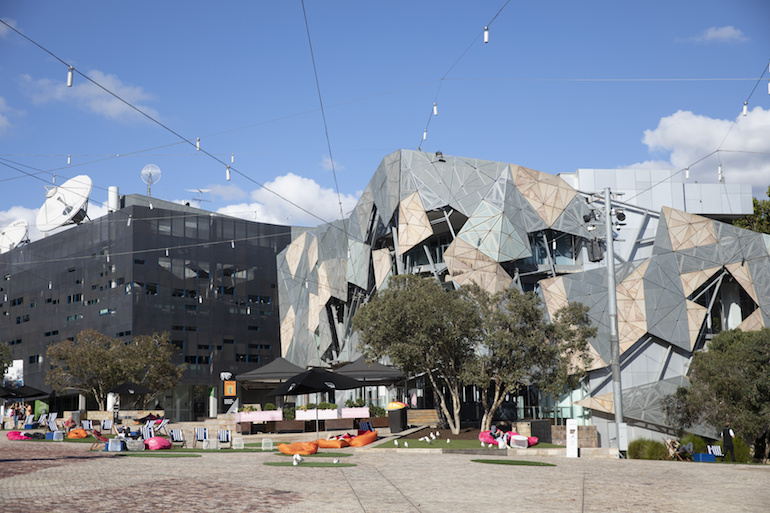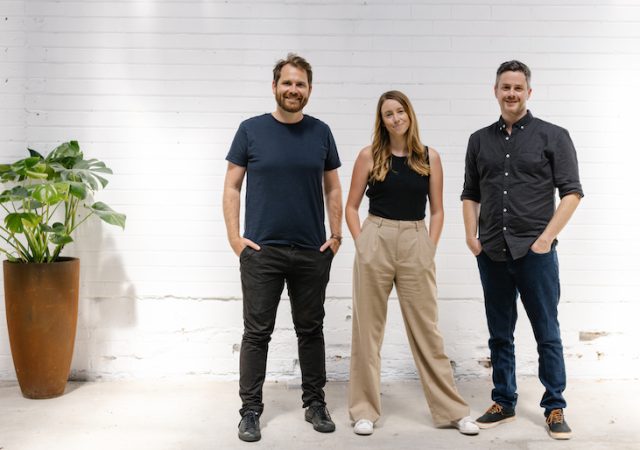Welcome to Giant Leap’s Small Steps, a newsletter offering global insights and news on the impact startups landscape. We’ll be sharing an edited version with Startup Daily readers every fortnight.
Giant Leap is Australia’s first impact venture fund, and they use this newsletter to surface the ideas and businesses that intrigue and inspire them and broaden their own thinking on impact business.
You can catch Giant Leap partner Rachel Yang on the Startup Daily show on ausbiz.com.au, offering insights on the impact of the startup ecosystem.
Here’s what they have to say this week:
Kick start
We’re thrilled to announce that our Impact Pitch Night is back!
This is our favourite event of the year and has previously featured pitches from WORK180 and Amber Electric (now Giant Leap alum).
It’s being run on October 26 in conjunction with StartUp Vic, and you can apply to pitch here (deadline October 14).
What we’re thinking about
A huge fundraising month for Aussie startups featured some serious impact currents, including $41.5m raised by Who Gives A Crap (Airtree called out their impact as a reason for investing), $100m raised by Mable (improving access to disability care), and $270m raised by Canva (in case you’ve just returned from a silence retreat, the founders committed 30% of their $10b dollar wealth to charitable causes).
It’s incredible to watch the Australian startup and tech community hitting in stride in addressing some of our biggest challenges.
Allowing retail investors to access climate impact investments will be a critical to democratising returns and unlocking the long tail of investable dollars. Super funds like Future Super and Australian Ethical take us some of the way, but new investing platforms and increasing engagement from retail investors investing their savings (dubbed the “Robinhood Effect”) creates opportunities for platforms that funnel these dollars to good.
Our Associate, Charlie, wrote about one of these platforms, Bloom Impact Investing, including inflection points and challenges for the retail impact investing market.
But unlocking retail climate investment is just part of the challenge – the reality is that many of the climate technologies we need (such as green hydrogen, carbon sequestration, and sustainable aviation fuel) still aren’t at scale and won’t be economic in time to hit our key climate objectives. Earlier in September, Michael Molitor, Adjunct Professor of Climate Change Research at UNSW, pondered the need for a climate fund with ZERO financial returns, trading off for massive gains in climate stability and long-term financial stability.
Just a few weeks later, cleantech investing leader Breakthrough Energy announced Breakthrough Energy Catalyst, a philanthropic coalition of multi-billion dollar organisations that aims to accelerate the development of these sub-economic technologies. Definitely considering hiring Michael for crystal ball services…
New paths
There’s now 80+ more jobs on the Giant Leap Fund jobs board and more jobs at ethical companies on the global B-Work job board.
Connect with us
Our Partner, Rachel Yang, is presenting at the CTRL+N session on using business as a force for good on October 12.
For the road
Intrepid’s Geoff Manchester is a trailblazer in the impact business space. In this podcast he outlines some of the steps Intrepid took to drive further impact with tourism. For example, Intrepid encouraged tourism to Nepal after an earthquake in 2015, attempting to buck a trend of tourists avoiding an area after a natural disaster.
The spirit of continuous improvement is alive in Brad Feld (Partner, Foundry and Co-Founder of Techstars). This podcast had some of our favourite advice about updating your thinking and addressing real mental health issues and burnout in the engrossing world of entrepreneurs.
Apple is working on technologies that detect cognitive decline and depression from your keystrokes. Could be ground-breaking for improving wellbeing, but the privacy concerns are real.
If you’re struggling with one friend that won’t accept science, this podcast might help you change the record. As Philosopher Lee McIntyre explains, the worst thing you can do is let them continue with their misinformation.
For the global look at climate tech startups, SOSV is holding a free virtual summit on October 20.
While you’re there, maybe you can check if those startups pass the Mr Burns Test?
And our favourite take from the shake.
Some of the devastating building damage from the Melbourne earthquake. pic.twitter.com/mS9V48Of7v
— Masericha ™️ (@masericha) September 22, 2021




















Trending
Daily startup news and insights, delivered to your inbox.